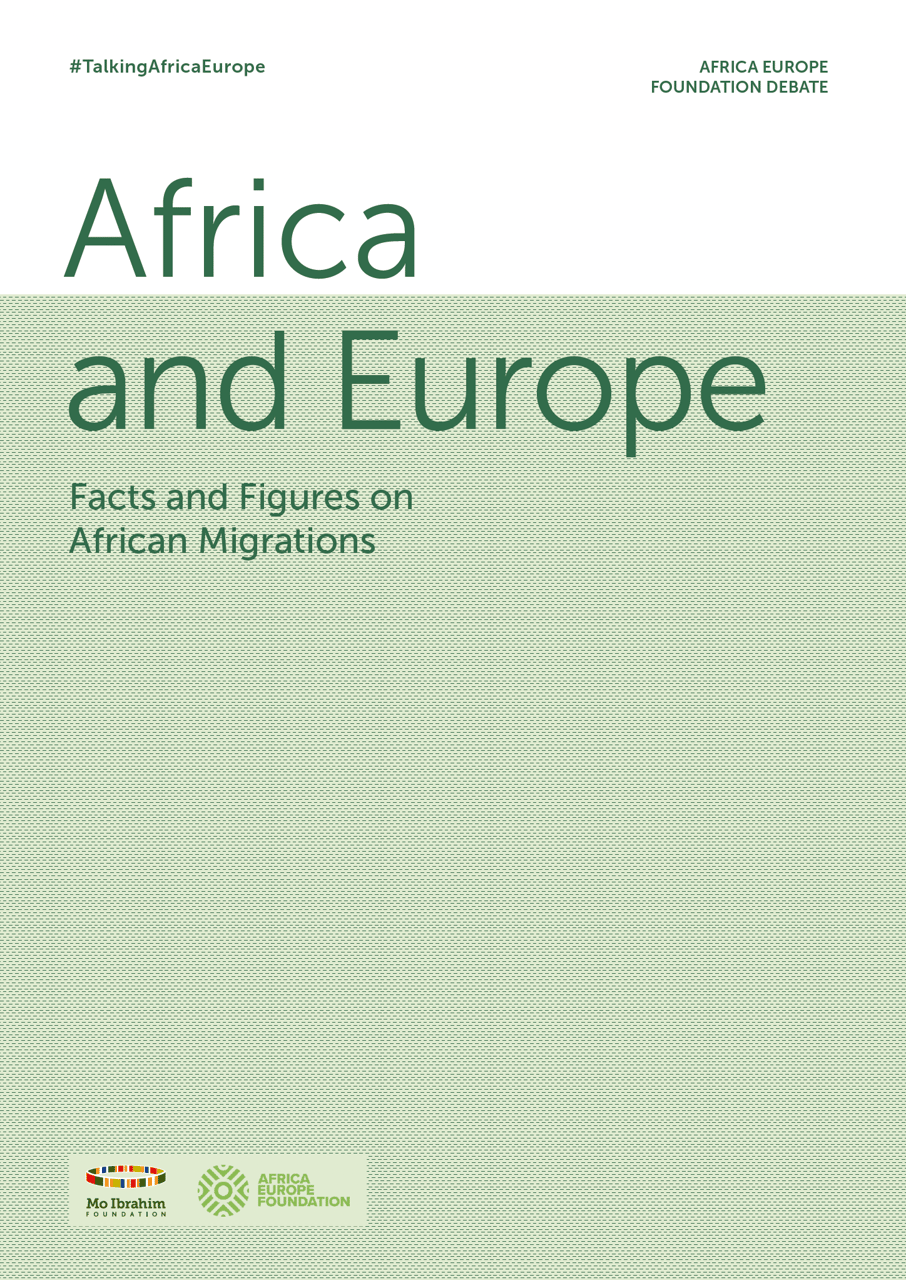Each debate was accompanied by a background note provided by the Mo Ibrahim Foundation, providing key facts and figures.
Ahead of the European Union-African Union summit, 17-18 February 2022, the Africa-Europe Foundation organised a series of debates on three key topics of shared interest.
Migration and mobility are very much linked. It is by promoting mobility, that you will have the type of migration you want.
Bernard Gustin

Migration has taken place for thousands of years, shaping human history, building nations and contributing to global wealth creation.
Debates about migration should really focus on ‘mobility’. Simply aiming at preventing migrations will only foster irregular and dangerous parallel routes.
African migrations - the facts
Despite common perceptions, Africa is not a continent of mass exodus and African migrants are not overwhelming Europe.
In fact, just 3% of the African population were living outside their home country in 2020 - compared to 8.5% of the European population.
Just 27.2% of all African migrants live in Europe.



22.5%
14.5%
14.5% of global migrants in 2020 were African, compared to 22.5% from Europe.
The majority of African migrants don’t leave the continent but migrate within Africa, and less than one third of all African migrants live in Europe.
Meanwhile, the vast majority of Africans who migrate to Europe come via regular channels, and mostly for economic reasons - young, educated, and looking for jobs. Only 7.2% of African migrants in EU countries are refugees.
Lack of job prospects - a key challenge
In the last decade, Africa’s economic growth has not resulted in sufficient job creation.
This is coupled with a massive youth bulge - 60% of Africa’s population is currently under 25 - with deteriorating education outcomes and a severe skills gap.
18 million new jobs are needed in sub-Saharan Africa by 2030, but only 3 million are currently being created.
Between 2010 and 2026, while Africa’s population growth is estimated at nearly 50%, GDP per capita is estimated to only grow by around one third. In contrast, the EU’s GDP per capita is estimated to still be more than 18 times larger than Africa’s in 2026, with a population growth of only around 1%.




3 million
18 million
Jean-Michel Severino
We have a huge gap to meet, and this is where all our efforts should focus on: providing jobs.

Mobility & connectivity
There is still a lot to be done to facilitate and better organise mobility within the continent.
The launch of the African Continental Free Trade Area (AfCFTA) in January 2021 is a key step forward, but it must be accompanied by progress in other African initiatives such as the Protocol on the Free Movement of Persons, currently ratified by just four African countries.
Furthermore, Africa’s intracontinental transport network is still insufficient.
¼
Just ¼ of Africa’s road network is paved, while in 2018, only five African countries had direct flights connecting to 20 or more other African countries.

When the infrastructure will be developed, the economy will follow, the jobs will follow and the mobility will follow.
Bernard Gustin

The skills gap is further hampered by a lack of educational and professional mobility. For many businesses in Africa, it is often easier to employ a skilled non-African expatriate than a skilled African expatriate. In contrast, freedom of movement and educational mobility make it much easier for European students and workers to move around their own continent for study and work.
The Fourth Industrial Revolution brought a profound change in the skills profile of jobs, and COVID-19 has heightened the importance of digital connectivity. But with many Africans lacking household internet access and almost 600 million Africans remaining off-grid, the digital divide remains a challenge.
Last but not least: know your data
African countries represent more than 52% of the global unregistered population. Strengthening civil registration and vital statistics across the continent is key to better managing migrations.
Migration in both directions will continue to be a defining feature of relationship between Africa and Europe for decades to come. It can be mutually beneficial provided that it is orderly, safe and focussed on the needs and aspirations of each person.
Paul Kagame




